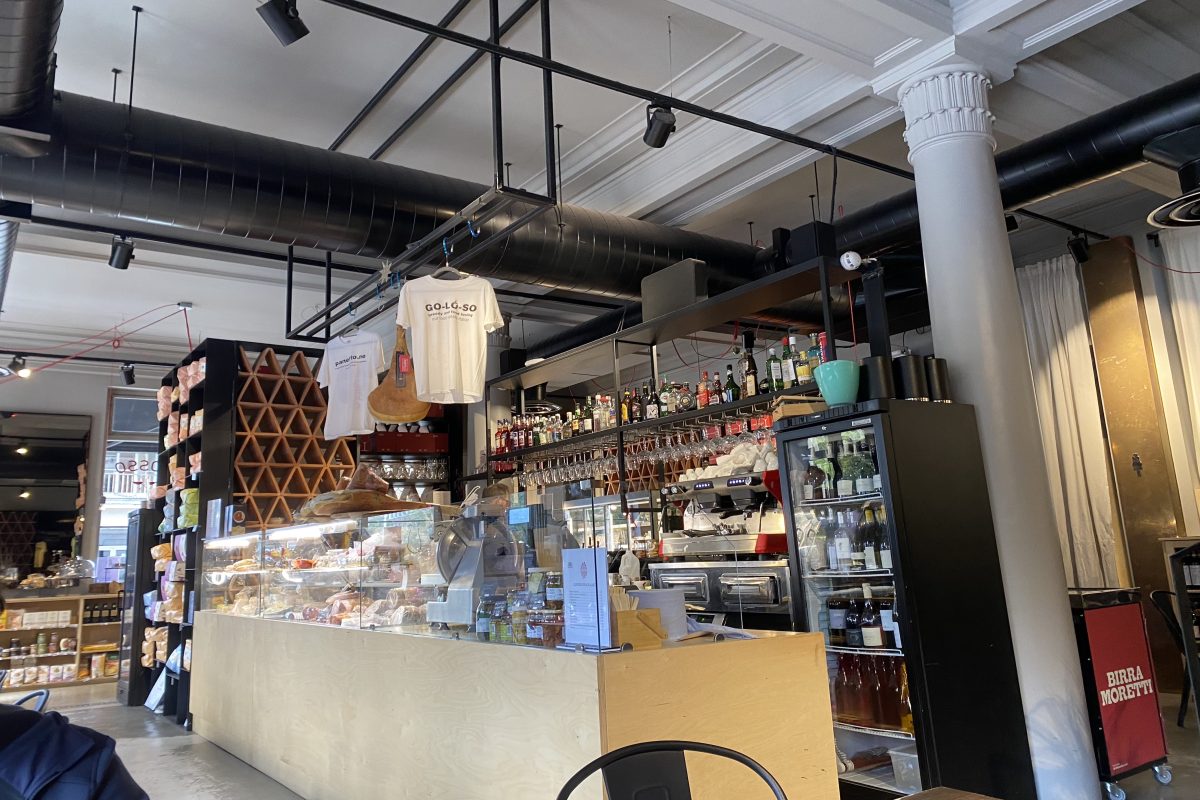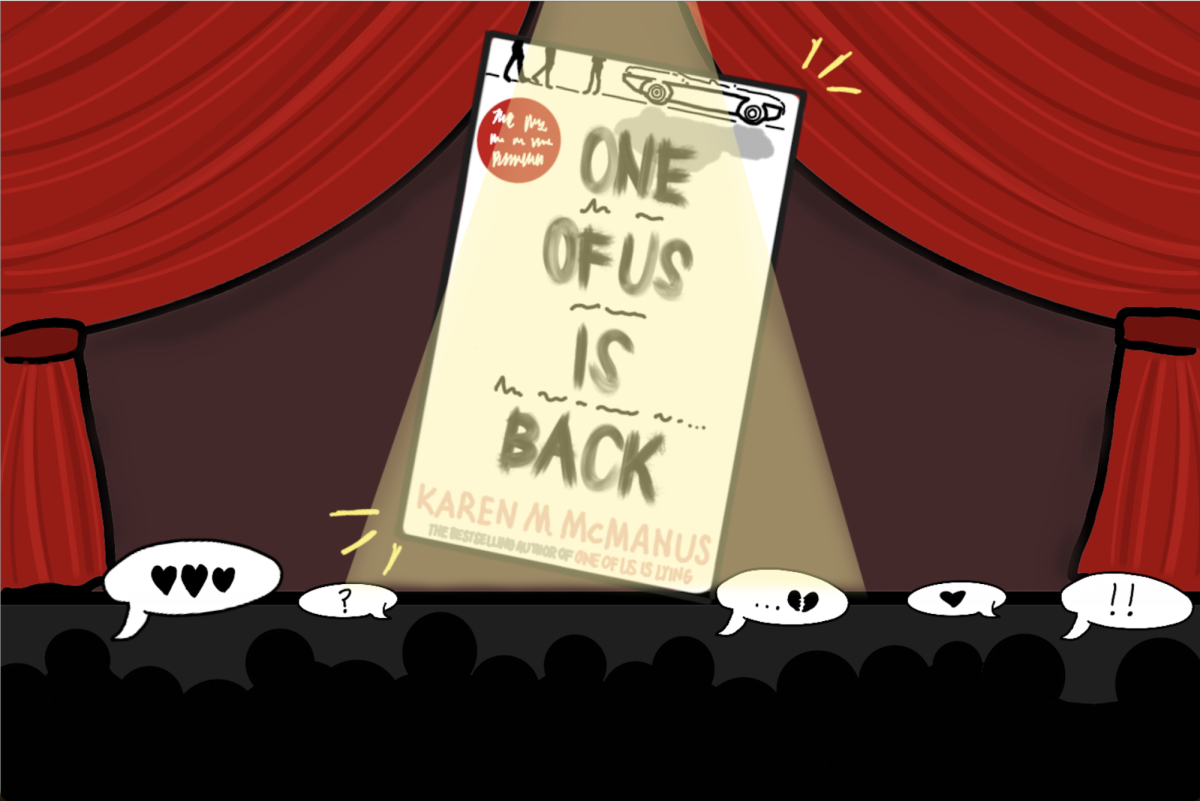It’s not the lights, the alcohol, or the girls that Archie (’15)* comes for. Sure, if he’s looking for a good time, a club will provide those, but really, it’s all about the music: That’s what he gets excited about. “Music is my passion, and I love the music they play at clubs, just being in the moment,” he said.
London’s nightlife has long been considered one of the best in the world, and it’s only recently that the music industry has found it. When Archie heard that Kanye West had sent his right-hand man, Virgil Abloh, to perform the debut of West’s new track “All Day” at the Drury Club, he knew he had to be there.
To him, events like this signal not only a transformation in the music culture but also a shift in the popularity of clubbing. When “you see all of these artists coming from [the US] and going to these different clubs, I feel like the culture is just booming, and especially the nightlife culture,” he said.
While not everyone is as particularly drawn to the music as Archie, clubbing, of both the underage and legal varieties – and at varying degrees of frequency – is present in the school’s weekend culture.
Some students, like Archie and Penelope* would fall on the more frequent end of the clubbing spectrum; Archie has been clubbing in some capacity every weekend in 2015 and Penelope has more or less done the same since she got her fake ID at the start of 2015.
Others, like Clara (’16)* and Lisa (’16)*, consider it less of a habit, restricting their clubbing experiences to big events or only once every few months.
Despite the vast difference in frequency, their reasons for clubbing are far less varied. The school’s clubbing culture seems to exist as a social haven for many, an atmosphere which can always be relied upon to deliver a fun experience.
Clara’s first time clubbing ended disastrously when she was taken to a back room of Cirque le Soir to wait for the police after metal detectors at the entrance of the club detected her Swiss Army knife, which she uses as a bottle opener.
It was only when the police were checking her fake ID for a criminal record that the true legality of the situation became clear: Being under 18, clubbing was technically illegal for her and her friends. “I was panicking a lot already, but I gave them my fake ID because I’m underage to go clubbing, which only made me more nervous because obviously it’s a fake and it’s the police,” she said. “I was thinking, ‘surely they must know this is a fake.’”
Clara’s fears were only heightened when she realized that, because her fake ID said she was an adult, she could be taken to a police station. “In [policemen’s] minds, I’m not a child, so they could have kept me overnight if they wanted to because my fake says I’m 21,” she said.
Although she was eventually released from the holding room – the pocket knife was under the minimum length for it to be considered to be a weapon – Clara and her friends left the club immediately and she has avoided Cirque Le Soir at all costs after the incident.
C
irque Le Soir’s website markets the club as an “extraordinary experience” but this experience, and others in London, Penelope believes, are much more accessible for girls than they are for boys.
As a girl, Penelope feels she has an advantage. “Guys hardly get in without a table. [Clubs] want a good looking crowd; so they want groups of attractive girls rather than a bunch of guys standing around awkwardly,” she said. “It helps the image of the club to have attractive women.”
However, there are certain expectations for girls; often having to dress up to get in. “You are forced to wear heels, they won’t let you in with flat shoes,” Penelope said. “You have to dress nicely, you can’t just go casually in jeans; like black dress or black pants and a tight shirt.”
From her experience, Clara would, without a doubt, agree that girls have the upper hand. Once during London Fashion Week, she and a group of guy friends attempted to enter a club. However, they were told that all boys would be charged £350 for entrance while girls could get in for the standard entry price of £20.
Despite being a girl, however, Penelope did find that she sometimes had to pay to get into a club. This changed when she connected with a club promoter, who helped her get into clubs without having a table or paying at the door. Now, “I can get in for free sometimes [while usually] you can’t get into a club unless you’re on the guestlist or have a table,” she said.
The club promoter aspect is another inner working of the clubbing scene, a process that often goes unchecked. Promoters do not work for one specific club. Instead, they work on their own.
Clara, who does not have a promoter herself, is hesitant to get affiliated with the promoter culture because, “they are really just random older men.”
“What do they really expect from you? How do they get you a free table? Are they going to eventually ‘expect’ some sort of payment at the end?” Clara said. “I don’t really know what their deal is, so I don’t really feel comfortable with that. Also, you don’t really know them and you have to lie about your age; it’s kind of a dangerous life.”
While Penelope’s current promoter is “fantastic,” she has had problems in the past. Penelope had found a promoter online to help her get into more exclusive clubs. When she first began to speak with him, using WhatsApp, he immediately friended her on Facebook and began texting her “winky faces and other things that made me feel uncomfortable,” she said.
Even though she blocked the promoter on WhatsApp messenger, he continued to harass her. “He would find new numbers to call me from,” she said. “It was really scary at the time because he knew all of my information, my name, [my] last name.”
Despite the dangers that come with clubbing, there is a reason that this “glamorous way of partying,” as Penelope put it, is so popular.
For Lisa it goes back to the strong culture that London provides. For her, “clubbing is an escape… London has such an amazing nightlife culture – while we are still here we want to experience it as much as we can.”
An altogether different reason, one that, in the eyes of Clara, separates clubbing from other forms of partying, is the relative anonymity that it provides. “It’s nice because you don’t really get judged; everyone’s off doing their own thing,” she said. “If you’re having a [house party] with a group of friends I feel like more eyes are on you. When there are more people, I feel like I can kind of blend in; there’s less focus on you directly.”
Socially, Archie believes a club is unrivalled. “I’ve met so many friends from outside of school through clubbing,” he said. “Also, I feel as though the experiences you share at clubs bond the friends you go with together more closely than any other social event.”
Archie cites an environment where his friends will form a close-knit group, because they don’t know anyone else in the club, as the reason for this bonding.
While Archie has frequently made connections with new people at clubs, one unanimously highlighted negative aspect is the amount of money involved in the experience.
Archie regularly spends, with his group of 10-20 friends, between £1,500 and £8,000 for a table at a club. “You don’t realize how much you are spending until you get the bill,” he said, with the tables often incurring more and more charges as the night progresses.
This, he feels, is directly connected to the second major downside he sees with the clubbing culture at the school. “A lot of people can’t go clubbing because it’s just too expensive,” he said. “I wish everyone could experience a night out at a good club in London, because it really is something to experience; I feel like the exclusivity aspect is definitely a negative.”
And, while a large spectrum of frequency exists within the student body, many students cannot fathom clubbing as often as say, Archie, does.
For Archie as well, because he has been clubbing so many times recently, the allure of it has worn off. While he continues to go, he no longer views clubbing with as much enthusiasm as he has in the past. “I’m kind of sick of it. It’s not as fun anymore,” he said.
Clara echoed Archie’s sentiments “I don’t understand the people who go every weekend, because then it’s not fun anymore,” she said. “If you do something over and over and over again it’s not special.”







